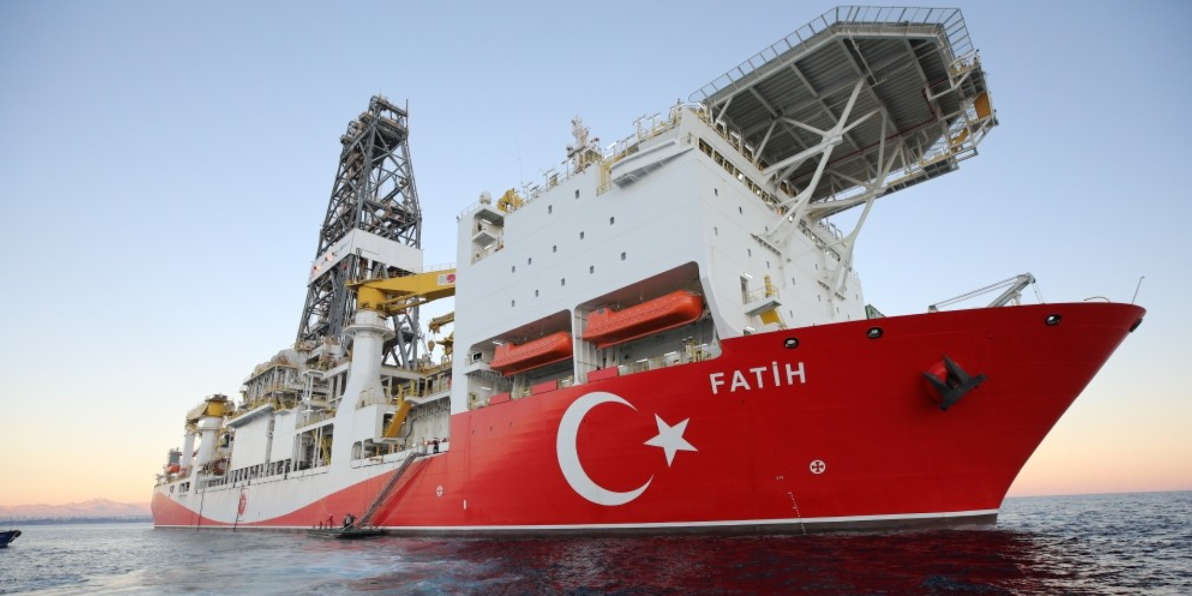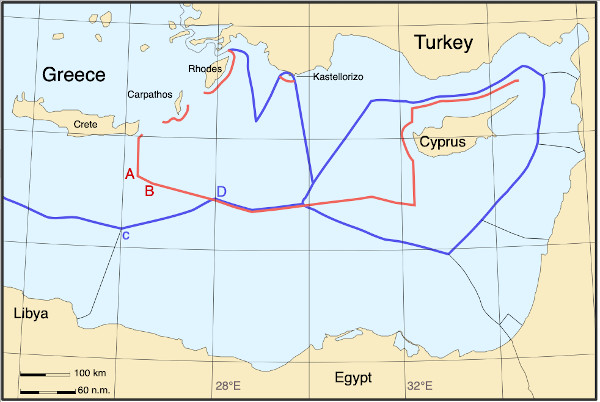In the picture
Turkish drillship Fatih, on one of its deployments in the Eastern Mediterranean [TPAO].
The historical tension between Greece and Turkey has taken on a new dimension in recent years over the control of energy resources in the Eastern Mediterranean. In addition to the traditional causes of friction between the two countries, there is now a dispute over the delimitation of their maritime borders in the Aegean Sea and the Eastern Mediterranean, since, among other things, exploration and exploitation rights for hydrocarbons located in these areas depend on it, and with them, naturally, important economic benefits.
The eastern Mediterranean Sea is bordered by the coasts of Greece, Turkey, Cyprus, Syria, Lebanon, Israel and Egypt. The fact that the region is dotted with numerous islands of different entities, belonging to several of these countries, only complicates the delimitation of Exclusive Economic Zones (EEZs), which in turn results in an invitation to friction and conflict.
Turkey and Greece, in particular, have competing ambitions for gas reserves and are not at agreement over who has the right to sovereignty or exploitation of the resources located in the central Eastern Mediterranean, as both argue that these areas belong to their respective continental shelves. This overlap makes it difficult to award the rights to explore and exploit hydrocarbon resources in the region. The status is further complicated by the lack of a agreement between Greece and Turkey on the delimitation of their respective EEZs in the Aegean Sea.
On the other hand, Greece and Cyprus have announced the creation of a joint EEZ to explore and exploit the resources present there. Unsurprisingly, this has angered Turkey, which considers that this decision affects its interests and its right to benefit from such economic activity.
Partly in reaction to this Greek Cypriot move, in November 2019, Ankara signed a agreement with the Libyan Government of National Unity (GNU) to create an Exclusive Economic Zone (EEZ) between Turkey's southern coast and the North African country's northeastern coast. The advertisement of the agreement was met with a general rejection from the region; Egypt called it illegal and Greece called it ridiculous because it ignores the Greek island of Crete, located between the two countries.
Without having reached agreement any cooperation or sharing, Turkey and Libya have initiated explorations in the area in search of hydrocarbons, and have signed agreements with international companies for the exploitation of the resources that may eventually be located.


